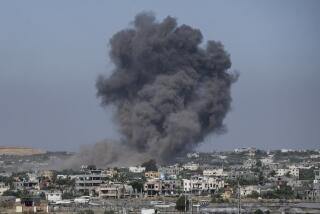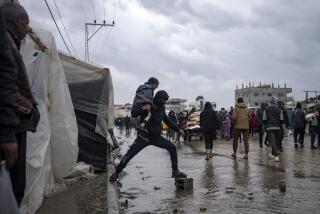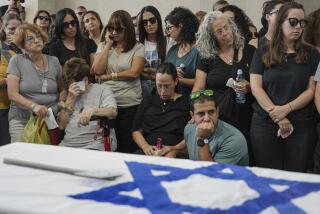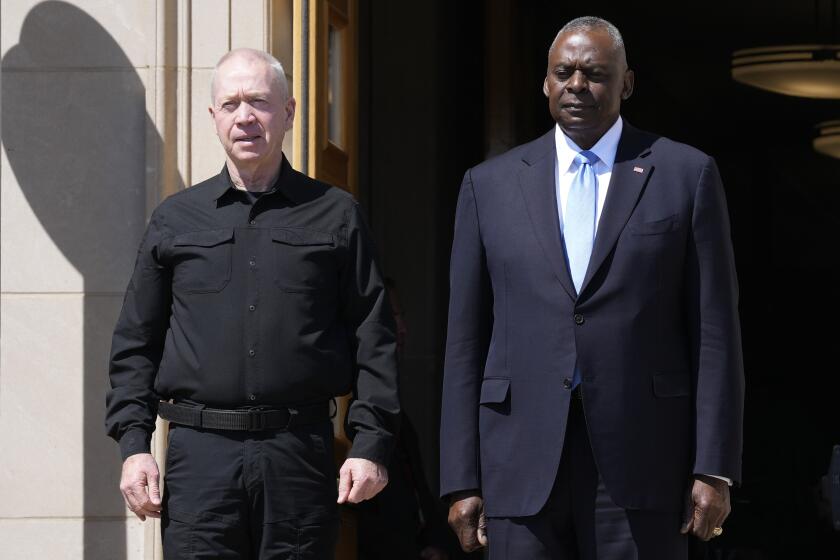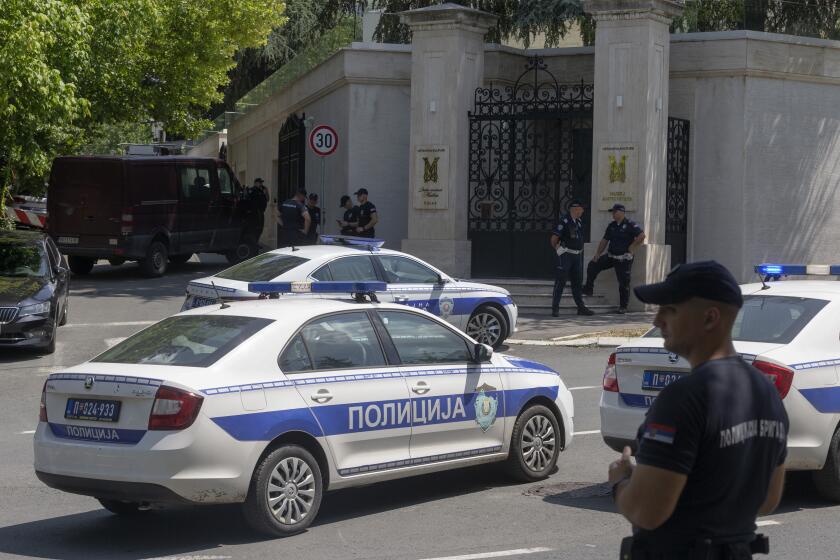Israel orders new evacuations in Gaza’s last refuge of Rafah as it expands military offensive
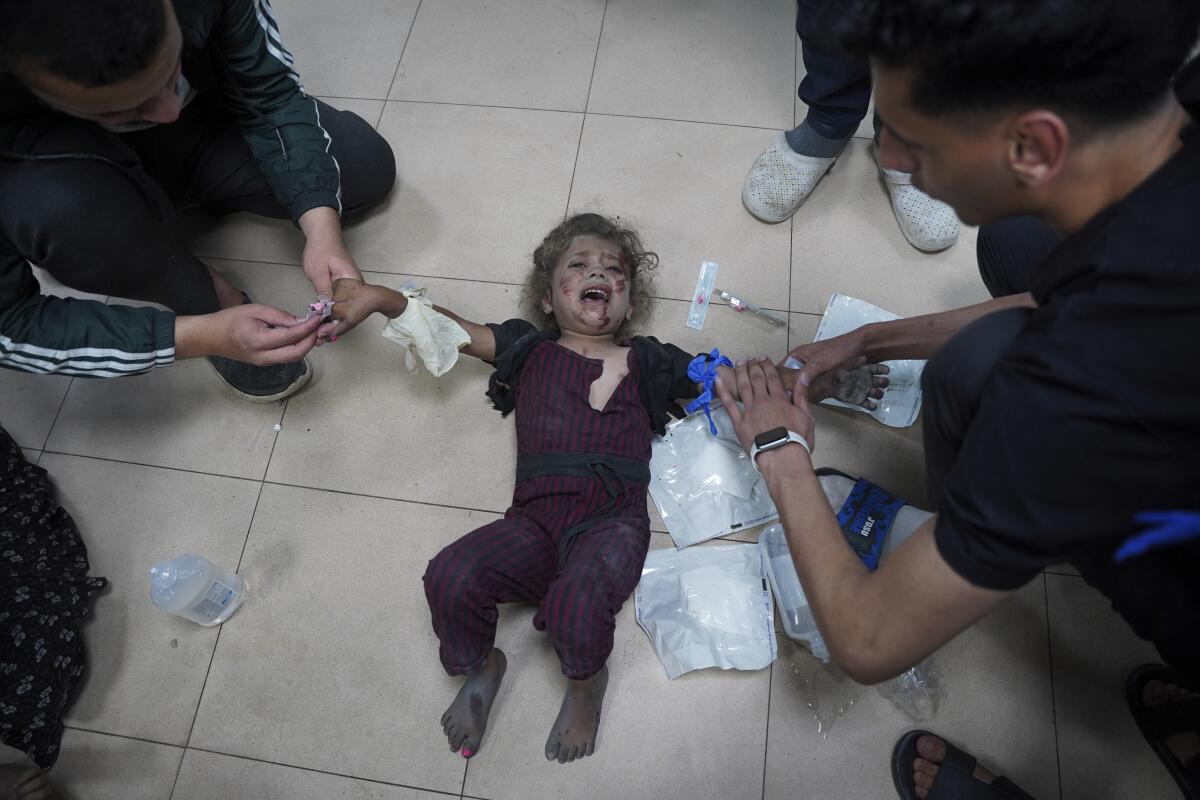
Israel ordered new evacuations in Gaza’s southern city of Rafah on Saturday, forcing tens of thousands more people to move as it prepares to expand its military operation closer to the heavily populated central area, in defiance of growing pressure from close ally the United States and others.
As pro-Palestinian protests continued against the war, Israel’s military also said it was moving into an area of devastated northern Gaza where it asserted that Hamas militants have regrouped after seven months of fighting.
Israel has evacuated the eastern third of Rafah, which is considered the last refuge in Gaza. Top Israeli military spokesman Rear Adm. Daniel Hagari said dozens of militants had been killed there as “targeted operations continued.”
The United Nations and others have warned that the planned full-scale Rafah invasion would cripple humanitarian operations and cause a disastrous surge in civilian deaths.
Rafah borders Egypt near the main aid entry points, which already have been affected. Israeli troops have captured the Gaza side of the Rafah crossing, forcing it to shut down.
Egypt has refused to coordinate with Israel on the delivery of aid though the crossing because of “the unacceptable Israeli escalation,” the state-owned Al Qahera News television channel reported, citing an unnamed official.
President Biden has said he will not provide offensive weapons to Israel for Rafah. On Friday the U.S. said there was “reasonable” evidence that Israel had breached international law protecting civilians in the way it conducted its war against Hamas — the strongest statement yet that the Biden administration has made on the matter.
The Biden administration says Israel’s use of U.S. weapons in Gaza likely violated international law, but officials could not determine for certain.
In response, Ophir Falk, foreign policy advisor to Israeli Prime Minister Benjamin Netanyahu, told the Associated Press that Israel acts in compliance with the laws of armed conflict and the army takes extensive measures to avert civilian casualties, including alerting people to military operations via phone calls and text messages.
More than 1.4 million Palestinians — over half of Gaza’s population — have been sheltering in Rafah, most after fleeing Israel’s offensives elsewhere.
The evacuations are forcing people to return north where areas are devastated from previous Israeli attacks. Aid agencies estimate that 110,000 had done so before Saturday’s order, which adds a further 40,000.
“What should we do here? Do we wait until we all die on top of each other? So we’ve decided to leave. It’s better,” said Rafah resident Hanan al Satari as people rushed to load mattresses, water tanks and other belongings onto vehicles.
“The Israeli army does not have a safe area in Gaza. They target everything,” said Abu Yusuf al-Deiri, earlier displaced from Gaza City.
Many people have been displaced multiple times, and there are few places left to go. Some fleeing fighting earlier erected new tent camps in the city of Khan Yunis — half destroyed in a previous Israeli offensive — and the city of Deir al Balah, straining infrastructure.
Israel-Hamas war: In Qatar’s capital, a compound housing Palestinian medical evacuees from Gaza is a living catalog of what war does to the human body.
Some Palestinians are being sent to what Israel has called humanitarian safe zones along the Muwasi coastal strip in Gaza. But the zone is already packed with about 450,000 people in squalid conditions, with the garbage-strewn camp lacking basic facilities.
Georgios Petropoulos, an official with the U.N. humanitarian agency in Rafah, said aid workers had no supplies to help people set up in new locations.
The World Food Program had warned that it would run out of food for distribution in southern Gaza by Saturday, Petropoulos said. Aid groups have said fuel will also be depleted soon, forcing hospitals to shut down critical operations and halting trucks delivering aid across south and central Gaza.
Heavy fighting was also underway in northern Gaza, where Hagari said that the air force was carrying out airstrikes. Palestinians in Jabaliya, Beit Lahiya and surrounding areas were told to leave for shelters in west Gaza City, and were warned that Israel would strike with “great force.”
Northern Gaza was the first target of Israel’s assault launched after Hamas and other militants attacked southern Israel on Oct. 7, killing about 1,200 people, mostly civilians, and taking an additional 250 hostage. They are still holding some 100 captives and the remains of more than 30. Hamas on Saturday said that hostage Nadav Popplewell had died after being wounded in an Israeli airstrike a month ago, but provided no evidence.
Israel’s bombardment and ground offensives have killed nearly 35,000 Palestinians, mostly women and children, according to Gaza’s Health Ministry, which does not distinguish between civilians and combatants in its figures. Israel blames Hamas for civilian casualties, accusing it of embedding in densely populated residential areas.
Civil authorities in Gaza gave more details of mass graves that the Health Ministry announced earlier at Shifa hospital, the largest in northern Gaza and the target of an earlier Israeli offensive. Authorities said most of the 80 bodies were patients who died from lack of care. The Israeli army said “any attempt to blame Israel for burying civilians in mass graves is categorically false.”
At least 19 people, including eight women and eight children, were killed overnight in central Gaza in strikes that hit the areas of Zawaida, Maghazi and Deir al Balah, according to Al Aqsa Martyrs Hospital in Deir al Balah and an Associated Press journalist who counted the bodies.
“Children, what is the fault of the children who died?” one relative said. A woman stroked the face of one of the children on the ground.
Another round of cease-fire talks in Cairo ended earlier this week without a breakthrough, after Israel rejected a deal that Hamas said it accepted.
Tens of thousands of people attended the latest anti-government protest in Israel on Saturday evening amid growing pressure on Netanyahu to make a deal.
“I think the [Rafah] operation is not meant for the hostages and not meant for killing the Hamas, it’s meant for just for one thing, save the government,” protester Kobi Itzhaki said.
Associated Press writer Shurafa reported from Rafah, Mednick from Tel Aviv and Magdy from Cairo. Jack Jeffery in Jerusalem contributed to this report.
More to Read
Start your day right
Sign up for Essential California for news, features and recommendations from the L.A. Times and beyond in your inbox six days a week.
You may occasionally receive promotional content from the Los Angeles Times.


